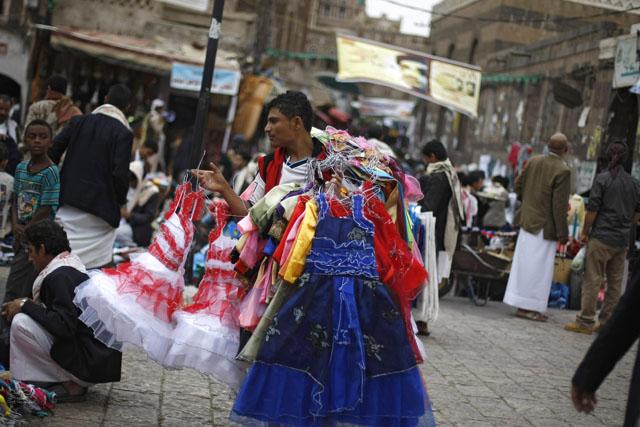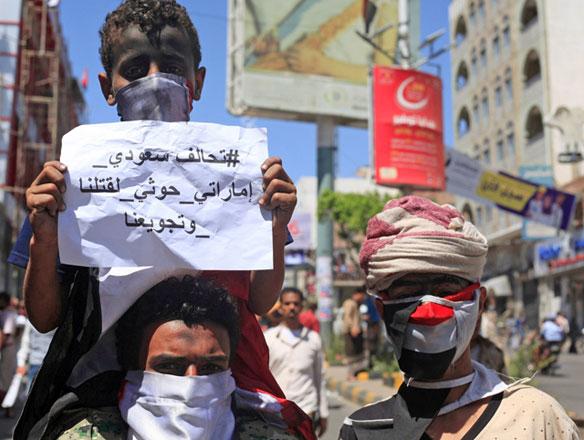You are here
Yemen foreign exchange reserves stabilise but borrowing balloons
By Reuters - Feb 21,2015 - Last updated at Feb 21,2015
DUBAI — Yemen’s foreign exchange reserves have stabilised after a steep fall due to its political turmoil, but ballooning government debt issuance indicates the country may be moving closer to a fiscal crunch, central bank data showed on Friday.
Shiite Muslim Houthi rebels completed a takeover of the capital Sanaa last month while in the south, forces loyal to former president Abed Rabbu Mansour Hadi still appear in charge.
Tribal conflicts and Al Qaeda insurgency are also disrupting Yemen’s oil and gas exports and other parts of the economy.
Gross foreign reserves, which had sunk to $4.65 billion in November from $5.35 billion at the end of 2013, recovered slightly in December to $4.67 billion, equivalent to 4.6 months of the country’s imports, the central bank figures showed.
This suggests that for now at least, Yemen can avoid a collapse of its external payments position. But a sharp rise of domestic borrowing by the government shows it is being forced to borrow heavily from local banks to stay afloat.
The government issued a record 77.2 billion riyals ($359 million) of domestic bonds in December, up 18 per cent from a year earlier, while outstanding treasury bill issuance climbed 9 per cent to 1.55 trillion riyals.
In addition to the political turmoil, the plunge of oil prices has slashed the government’s energy income; the value of oil exports fell to $1.67 billion last year from $2.66 billion in 2013, the central bank data showed.
That makes foreign aid more critical, but the political instability has called aid into question; Saudi Arabia has suspended most of its financial aid to Yemen, worried that the rebels will gain access to it, Yemeni and Western sources said.
The International Monetary Fund (IMF) agreed in July to provide a $553 million loan to Yemen over the next three years after the government pledged economic reforms, including a cut of about 50 per cent in fuel subsidies and higher tax revenues.
So far, the IMF deal is holding together, officials on both sides told Reuters.
An official in Yemen’s planning ministry, declining to be named, said the IMF had not made any decision to suspend the loan, and that the future of the deal would depend on a solution to the political crisis.
A senior IMF official said his organisation was maintaining regular contacts with Yemeni officials and continuing to provide them with technical analysis.
“What I’m in a way pleasantly surprised by is that despite all this, at the working level, at the policy level, even the ministers are continuing to engage on the policy discussion, on the agenda,” the IMF official said.
“I could have imagined everything would come to a halt right now. And yet they’re very keen to keep at it. And also, they keep saying that they’re pursuing the things they committed to do, so they would like the IMF-supported programme to continue. So I hope that will be the case,” he added.
Related Articles
Yemen’s president unveiled a clampdown on public sector spending on Thursday, including a feasibility review of state-owned companies and a ban on all but economy class travel for ministers in the impoverished Arabian Peninsula country.
ABU DHABI — The best way to resolve Yemen's humanitarian crisis is to fix the economy so stemming a slide in the riyal currency is the top i
CAIRO — The United Arab Emirates is to inject $35 billion in foreign direct investment into Egypt over the next two months, Egyptian Prime M














